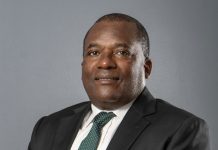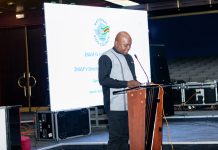
Chihera, Program Director at Trans and Intersex Rising Zimbabwe
BY MUNYARADZI BLESSING DOMA
According to Global Action for Trans Equality (GATE), the January 2025 halt in United States foreign assistance has created an unprecedented crisis for trans and gender diverse communities around the world.
It is reported that for decades, US funding, channeled through programs like Presidents’ Emergency Plan For AIDS Relief (PEPFAR) and USAID, has been a lifeline for grassroots organizations providing essential services, including HIV and STI prevention, treatment and care, hormone therapy and monitoring for adults, and mental health support.
And with funding now frozen, the impact is already being felt in communities that are among the most vulnerable.
In some cases, clinics and programmes have been shut.
And in Zimbabwe, this community has also not been spared, as the funding cuts has affected several programmes for the transgender and intersex, threatening to derail progress made.
According to the World Medical Association (WMA) a “transgender is an umbrella term for individuals whose gender identity differs from the sex they were assigned at birth.”
And according to the World Health Organisation (WHO), “intersex people are born with physical, hormonal, or genetic characteristics that do not conform to the typical binary biological definitions of male or female.
“Intersex variations are natural biological variations and not related to a person’s sexual orientation or gender identity.”
In a wide ranging interview with this publication, Bee Chihera Meki, Trans and Intersex Rising Zimbabwe (TIRZ), Program Director, the US funding cuts severely impacted the community, affecting various thematic areas.
Chihera revealed that thematic areas which were affected include, health, livelihood, legal, research, family and friends, education and Information, religious and cultural.
“Health was affected as a result of the disrupting in access to HIV prevention, treatment, and care services, including Gender Affirming Care.
“Clinics providing essential healthcare services to trans and gender-diverse individuals are facing imminent closure, putting lives at risk.
“Livelihood; economic instability and loss of support services may force individuals into high-risk situations.
“Advocacy and awareness; reduced capacity to raise awareness and create enabling environments for sex- and gender-diverse communities. Gender-Based Violence; increased vulnerability to unreported cases like corrective rape and forced marriages due to lack of support services and advocacy,” said Chihera.
She added that a lot of programmes had been disrupted including the HIV Prevention and Treatment-access to Pre-Exposure Prophylaxis (PrEP), HIV testing, counseling, and Antiretroviral Therapy (ART) services.
Chihera also revealed that other disrupted programmes included “Community Support Services-closure of TIRZ’s one-stop centers in Masvingo, Rusape, Gweru, Bulawayo, and Mutare has eliminated safe spaces for sex-and gender-diverse individuals.
“TIRZ one-stop centers in different areas geographically Masvingo, Mutare, Rusape, Gweru and Bulawayo. Five sites closed.”
Community engagement programs were also affected, such as the mental wellness programs which are meant to reduce self-stigma and suicidal tendencies and behaviours.
Other losses included those to do with capacity building, leaving the organisation’s operations crippled.
Chihera also revealed that some of the consequences of the funding cuts included the increased risk of HIV transmission, an issue also highlighted by UNAIDS.
“The sudden pause (funding cuts) had an immediate impact on the delivery of life-saving HIV medicines and the provision of HIV prevention services to millions of people whose lives depend on them,” read a report from UNAIDS.
Chihera said “mental health crisis due to lack of critical counseling and peer support, reversal of progress in global public health, trans health, and human rights,” were some of the consequences.
She however that added that it was not all gloom, as they had engaged on other initiatives for support, collaborating with other stakeholders, reaching out and having community self-initiative bring and share.
Chihera also pointed out that members of the trans and intersex community in Zimbabwe continue to face numerous challenges in their daily lives, including “stigma and discrimination.
“Widespread stigma and discrimination from family, community, and society at large, leading to social isolation and exclusion.
“Violence and abuse; physical and emotional violence, including corrective rape and forced marriages, are prevalent.
“Lack of acceptance; many community members face rejection from their families and communities, leading to feelings of loneliness and low self-esteem.
“Limited access to services; barriers to accessing essential services like healthcare, education, and employment due to discriminatory laws and policies.
“Mental health challenges; the trauma and stress caused by stigma, violence, and discrimination can lead to mental health issues like depression and anxiety.”
It was added that social exclusion from various activities were also some of the challenges which are still being experienced by members of this community.
And they continue to also face economic challenges as they have limited access to employment and economic opportunities due to stigma and discrimination.
“These challenges are exacerbated by the lack of legal recognition and protection for the rights of trans and intersex individuals in Zimbabwe.
“To achieve inclusivity in society, several issues need to be addressed including legal recognition and protection whereby there is need to ensure legal recognition and protection of the rights of marginalized groups, including trans and intersex individuals.
“Education and awareness; need to promote education and awareness about diversity, inclusivity, and the experiences of marginalized groups.
“Access to services; ensure equal access to essential services like healthcare, education, and employment.
“Stigma and discrimination needs to be addressed through community engagement and sensitization.
“There’s need to challenge and change social and cultural norms that perpetuate exclusion and marginalization,” added Chihera.
She added that there is need for representation and visibility, establishment of support systems, such as counseling and peer support groups, to help individuals cope with trauma and marginalization.
And another call was for policy reforms, so that they promote inclusivity and protect the rights of marginalized groups, as well as engaging members of the community.
“By addressing these issues, we can work towards creating a more inclusive society where everyone has the opportunity to thrive.”
Chihera noted that by addressing these issues, the country can work towards creating a more inclusive and supportive society for trans and intersex individuals in Zimbabwe.











